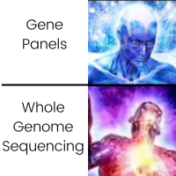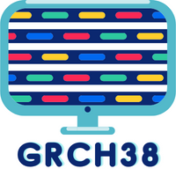Explore the evolving landscape of genomic analysis, transitioning from targeted gene panels to whole genome sequencing. A recent trend with our customers has been to expand their workflows from small panel sequencing analyses to larger whole exome and genome sequencing analyses. The decreasing cost of sequencing has made this a rather common request. Although more data allows for a greater… Read more »
I’d like to take a moment to announce the release of updated gene tracks for the GRCh38 genome assembly! Gene annotation tracks are essential to all VarSeq projects and workflows. Whether your favorite gene track is Ensembl or RefSeq, both sources have been updated and released and can be used for variant annotation. These gene tracks are used to annotate… Read more »
Thanks to all those who attended the recent webcast by Dr. Rana Smalling, “Integrating Custom Gene Panels for Variant Annotations”. If you were unable to attend or would like to recap, here is a link to watch the broadcast. We covered a lot of content regarding virtual gene panels, and there were several questions submitted during our Q&A session that… Read more »
Clinical diagnostic efforts in next-generation sequencing are commonly defined at a gene panel level. The validation process of adding new genes to any diagnostic panel is ongoing, but labs typically construct and validate their clinical workflows for the current status of verified genes. This is not limited to primary finding results but can also include any incidental findings among the… Read more »
Clinical labs often maintain gene panels, which are lists of genes with evidence of disease association. These panels are used to prioritize variants and limit interpretations to a predefined set of test-specific genes. In general, gene panels should be stored independently of any specific project or interpretation, as it is common for an individual gene panel to be generally applicable… Read more »
Upcoming Golden Helix Webcast: Using Clinical Reports as part of a Gene Panel Pipeline Wednesday, July 13th @ 12:00 pm EDT VarSeq Reports can be used as part of an automatic pipeline to quickly list variants with information that can be used to make actionable clinical decisions in a readable HTML format. Need to further filter the variants or add interpretation… Read more »
In 1914, the German cytologist Theodor Boveri coined the phrase “Cancer is a disease of the genome”. At this time, his ideas were as equally revolutionary as they were highly contested. Fast forward. More than a hundred years later, Next-Generation Sequencing effectively permits a highly sensitive analysis of cancer cells. It can help us to understand mutations associated with cancer… Read more »
The adoption of genetic services is key to our ability to provide personalized medicine in the future. The goal is to better diagnose diseases, predict their outcomes, and to choose the best possible care option for a patient. Our part here at Golden Helix is to essentially build the equivalent of an MRI for the genome. In this process the latest… Read more »




